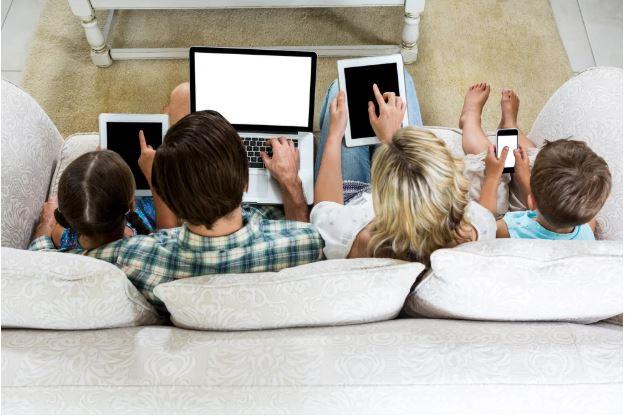Family Zone & Cyber Safety

Download Family Zone
Make use of the Family Zone Accounts which we are offering to John XXIII College families for free, as part of our College contract negotiations until 2020.
By setting up a private Family Zone account, you can apply age-appropriate parental controls on every device your child has access to, in any location. To find out more visit https://www.familyzone.com/johnxxiii-wa
Do we need to scrap the whole notion of "screen-time"?
Some recent research condemns the category “screen-time” as too broad and ill-defined to be meaningful. The World Health Organisation begs to differ. Its new guidelines, released late last month, recommend strict screen-time limits for children - no matter what they’re viewing or how they’re viewing it in.
Over the next two weeks, we’ll examine the screen-time debate in detail. Today: the case for a more nuanced understanding.
Screen-time ain’t screen-time
According to this view, engaging with a screen can be a positive, negative or neutral experience, depending on the content and the context. Or, to put the same idea more simply, “screen-time ain’t screen-time.”
Playing Fortnite for hours, or wandering through the endless corridors of Instagram, cannot and should not be equated with spending the same amount of time composing original music on Garage Band, say, or creating a personal website. In the same way, the screen-time that consumes an increasing part of the school day is one thing. And zoning out with an endless YouTube loop of unboxing videos is quite another.
We all need a way to unwind - whether with Peppa Pig or Bachelor in Paradise. But that doesn’t make it a high-quality experience.
Quality over quantity
In other words, it’s not a matter of quantity, but of quality. Experts point to several dimensions that we should consider when distinguishing between low-quality and high-quality screen-time. First, is it interactive or passive? Games and sites that encourage users to create rather than simply watch score high on the interactivity dimension.
The educational value of screen-time is another critical dimension - although in practice it’s far from clearcut. Watching anime may seem passive, but if it leads to a lively interest in Japanese language, art and culture - well, not so much.
Finally, there’s the dimension of engagement versus disengagement. Screen-time that’s all about zoning out would rank high on the disengagement scale. That doesn’t make it dangerous. After all, we all need a way to unwind - whether with Peppa Pig or Bachelor in Paradise. But that doesn’t make it a high-quality experience.
No simple yardstick
Even within a particular content category - say, social media or gaming - a simple yardstick approach to screen-time may be of limited use.
A large-scale study published this month in the prestigious journal of the National Academy of Sciences looked at the impact of social media screen-time on British tweens and teens and found that, on the whole, the impact on their wellbeing was “trivial.” Overall, the study found, it accounted for less than 1% of their life satisfaction.
Not so fast!
The research had some serious limitations. For one thing, the sample included an odd age range: 10 to 15 - and responses dated back as far as 2009, when the social media world was ruled by the now-defunct MySpace platform, and well before the advent of Instagram and Snapchat.
More importantly, it relied solely on self-reports by children themselves. In other words, kids told researchers how much time they were spending and how they believed their life satisfaction was being impacted. Researchers took those responses at face value.
We need to retire this notion of screen-time.”
Nevertheless, co-researcher Andrew Przybylski concluded that the findings constituted robust proof that “we need to retire this notion of screen-time.” He told the BBC “The results are not showing evidence for great concern.”
An experimental psychologist affiliated with the Oxford Internet Institute, Przbykski and colleague Amy Orben have also disputed the nearly universally held view that screen-time before bedtime has negative effects on teens’ psychological wellbeing. They made the claim on the basis of another self-report study in a paper that received extensive media coverage after it was published last month in Psychological Science.
Alarmist headlines!!!
Family Zone cyber expert and clinical psychologist Jordan Foster of ySafe agrees that the category of screen-time can be overly broad.
“Much of the initial research and commentary about this topic has been alarmist, and stating that 'screen time is bad' is too simple and therefore inaccurate to accept this as a conclusion,” she observes.
“What we can say with confidence is that there are positive and negative elements to screen time, both in how much time kids are having and what they are actually doing on their screens.
“Parents who are actively involved in their kids’ digital lives can make more informed judgements about the impact of screen time on their individual child, and make adjustments as needed.”
Next week, we take a look at the other side of the screen-time debate - exploring the latest World Health Organisation guidelines that maintain that, in fact, screen-time is screen-time.


